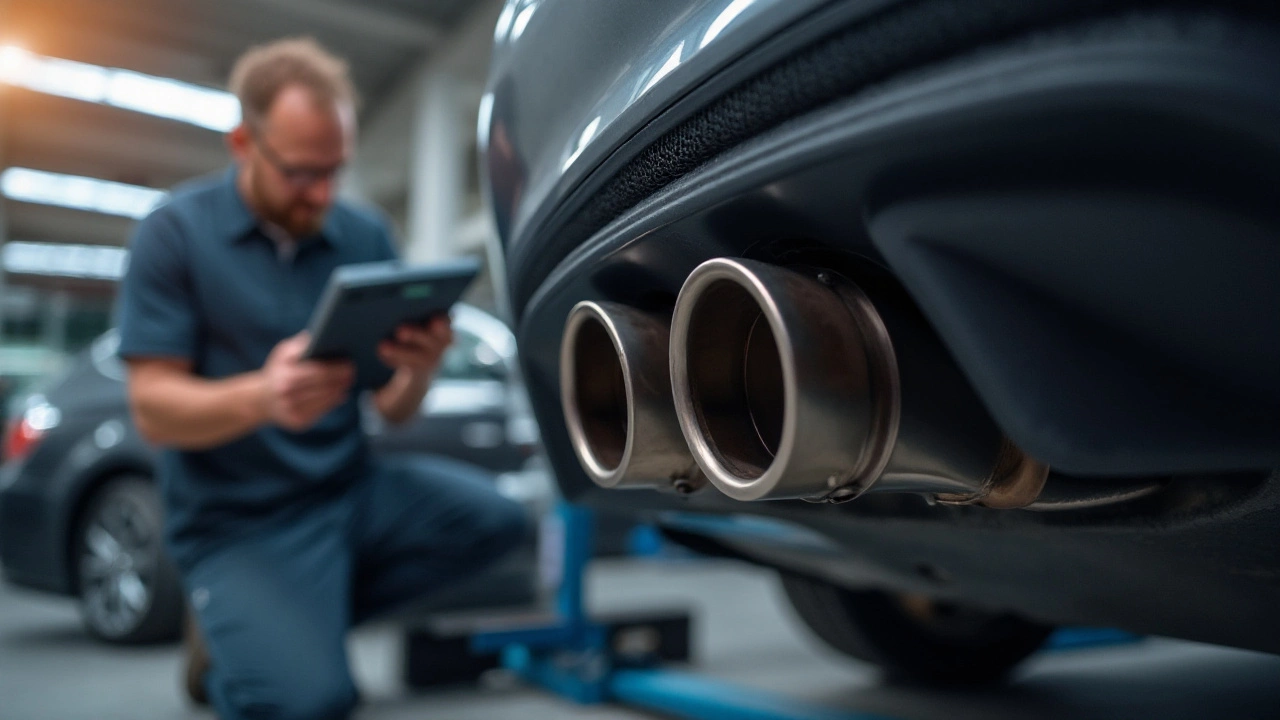Exhaust System Basics and Performance Tips
When working with Exhaust System, the network of pipes, muffler and catalytic converter that moves combustion gases out of the engine while controlling noise and emissions. Also known as exhaust, it is a critical bridge between the engine’s power cycle and the outside world. Understanding its role helps you spot problems before they turn into costly repairs.
The Muffler, a resonator that reduces exhaust noise and can influence back‑pressure works hand‑in‑hand with the Catalytic Converter, a emissions control device that turns harmful gases into less toxic compounds. Together they shape the sound you hear and the emissions you dump, but they also affect engine efficiency. A clogged catalytic converter raises exhaust temperature, which can stress the Fuel Pump, the unit that delivers pressurised fuel to the engine and may cause lean‑run conditions. Likewise, a mis‑firing Spark Plug, the component that ignites the air‑fuel mixture in each cylinder creates irregular combustion, leading to increased back‑pressure and louder exhaust notes. When any of these parts start to fail, the exhaust system’s performance drops, fuel consumption rises, and you might notice strange noises or a drop in power.
What to watch for and how to keep everything in sync
Typical signs that the exhaust system needs attention include a rattling sound under the car, a sudden loss of horsepower, or a sulfur smell from the tailpipe. If you notice decreased fuel efficiency, it’s worth checking the spark plugs and fuel pump first – they’re often the culprits behind an over‑working exhaust. A quick visual inspection of the muffler for rust or holes, and a temperature check of the catalytic converter after a short drive, can save you from bigger headaches. Regular oil changes, proper coolant levels, and keeping the air filter clean also protect the exhaust pathway by preventing excess heat and particulate build‑up.
Below you’ll find a hand‑picked collection of articles that dive deeper into each of these components. From spotting bad spark plugs to understanding how a faulty fuel pump can affect exhaust flow, the posts give you actionable steps, cost estimates, and DIY tips. Whether you’re a seasoned DIYer or just starting to look after your car, the guide series will help you keep the exhaust system humming smoothly.
Ready to explore the details? Scroll down to see the expert advice that ties together mufflers, catalytic converters, spark plugs, fuel pumps and everything else that makes an exhaust system work efficiently.

Borla vs Flowmaster: Which Exhaust System Wins in 2025?
Oct 18 2025 / AutomotiveCompare Borla and Flowmaster exhausts in 2025: sound, material, power gains, price, warranty, and fitment to help you choose the right system.
VIEW MORE
How Changing Your Car’s Exhaust Impacts Engine Performance and Longevity
Jun 29 2025 / Car MaintenanceDiscover how swapping your car's exhaust can change engine performance, fuel efficiency, and other critical factors. Facts, tips, mistakes to avoid—no jargon.
VIEW MORE
Exploring the Impact of Muffler Deletes on Fuel Efficiency
Jan 16 2025 / AutomotiveMuffler deletes have become a popular modification with car enthusiasts, but whether they actually improve miles per gallon (MPG) is a topic of debate. This article takes an objective look at the mechanics behind muffler deletes and their influence on a vehicle's performance. Readers will learn how exhaust systems work, along with potential benefits and drawbacks of removing the muffler. Discover if this modification aligns with your vehicle goals and what experts suggest before making changes.
VIEW MORE